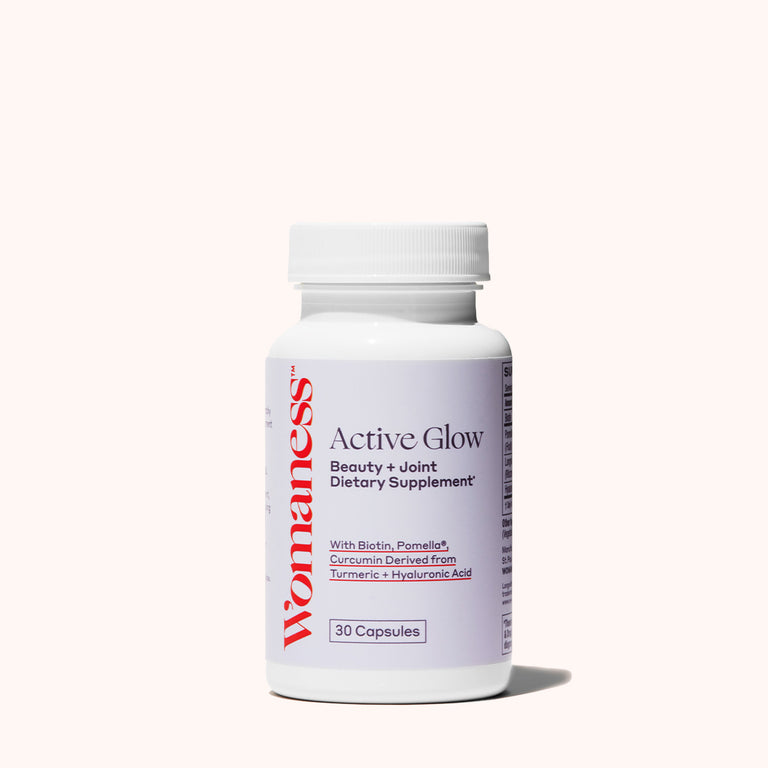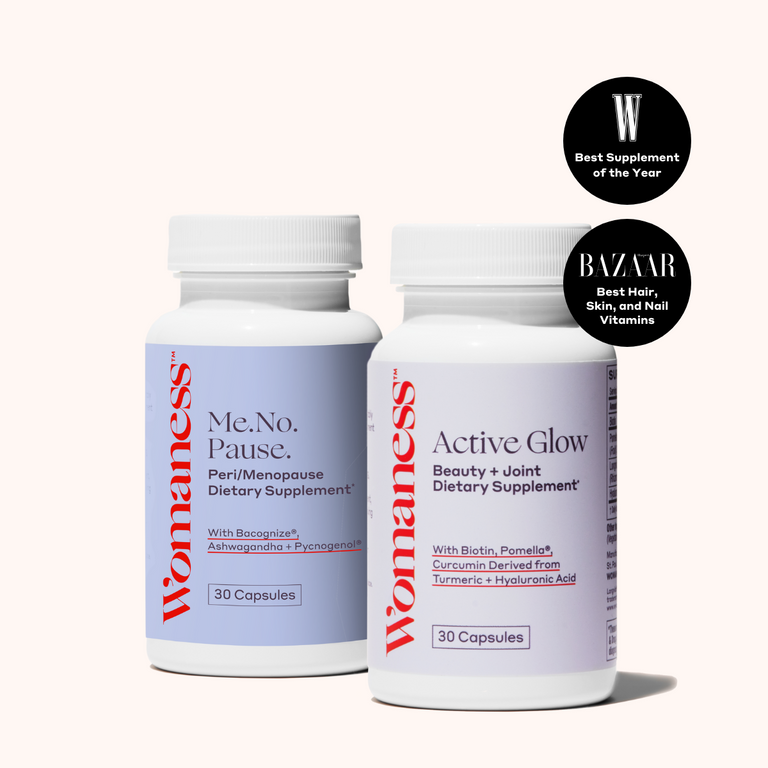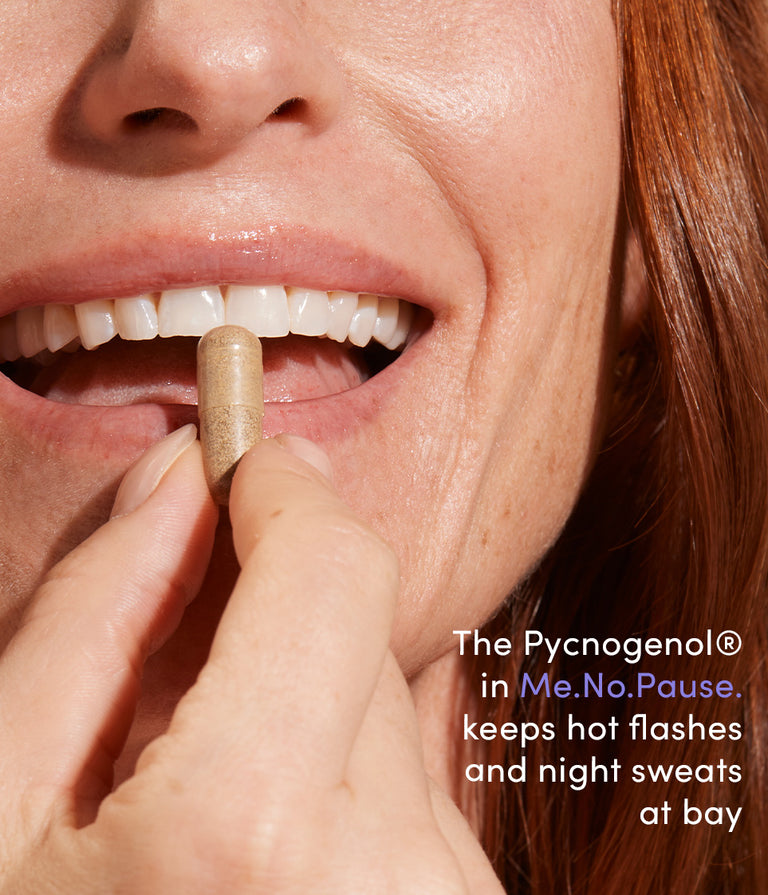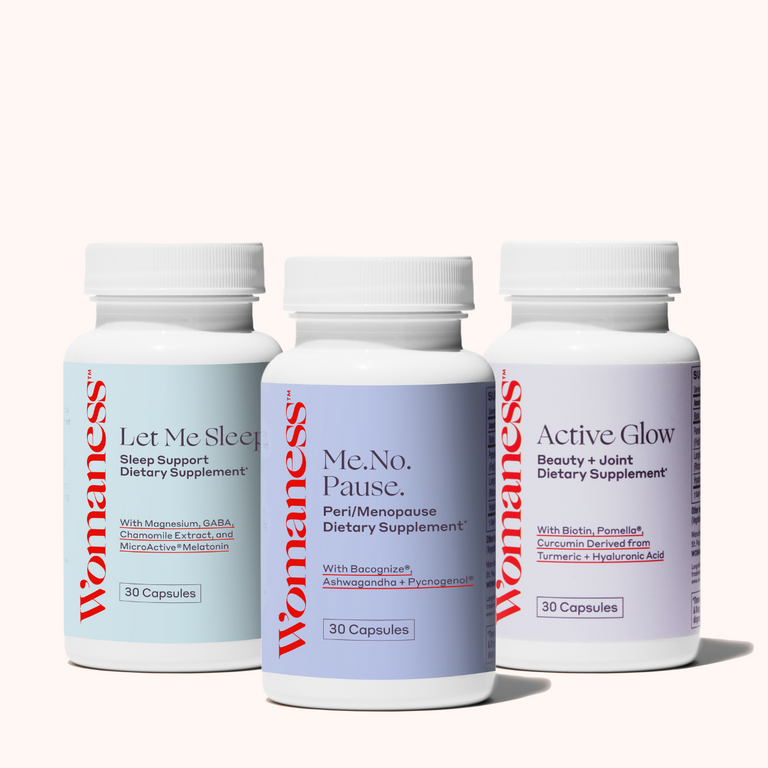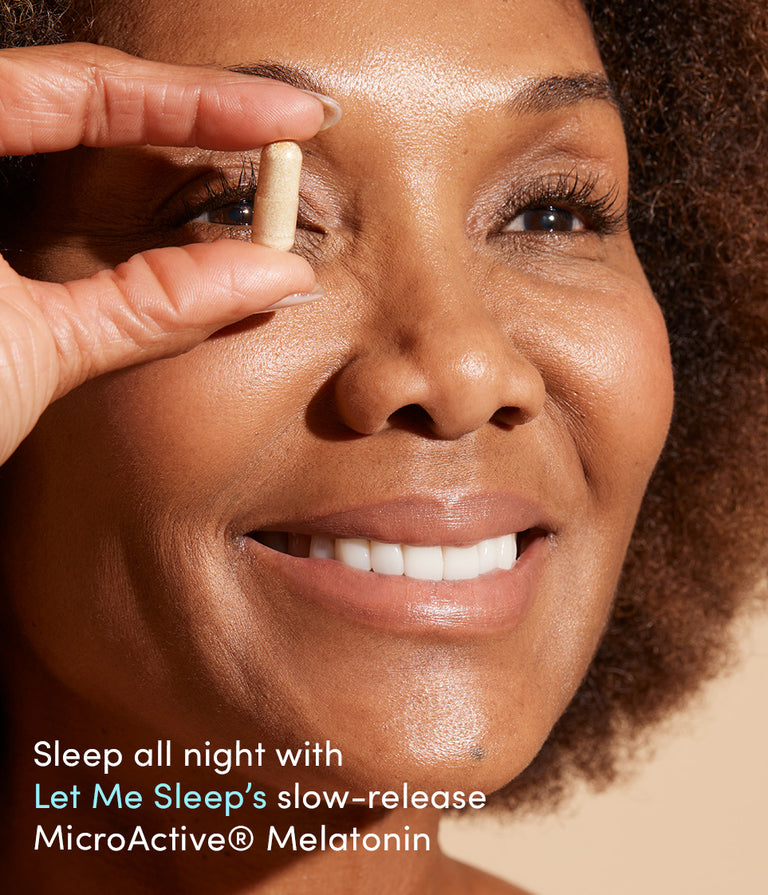By Womaness Editors 3-Minute Read

As bad as the lackluster, dry, or brittle hair of menopause can be, it's undoubtedly better than shedding your hair completely! Thankfully, biotin—a water-soluble B vitamin found in many foods—is here to help ward off hair loss and help your hair's luster. Read on to learn how to make the most of this powerful and popular hair, skin, and nail vitamin and if it's right for you.
What is biotin, and why is it essential for hair health?
Biotin is a water-soluble vitamin that is part of the B-vitamin family. You're dealing with biotin whenever you see mentions of vitamin B7 or vitamin H. Because biotin helps your body metabolize energy—specifically fat and protein—it's vital for your hair health, nail strength, and nervous system.
A well-rounded diet with egg yolks, liver, oats, wheat germ, mushrooms, rice, spinach, and milk will supply this essential vitamin. Supplementation is also a prevalent and safe option to get enough biotin.
Biotin deficiency and hair loss in women
In a study investigating the impact of biotin on female hair loss, biotin deficiency was found in 38% of women with hair loss, and only 13% of the women with hair loss studied had optimal biotin levels.
While it's believed most Westerners get enough biotin in their diets, some factors can impact your body's ability to absorb it effectively, leading to biotin deficiency. Metabolism problems or gut issues, including IBS or too much antibiotic use, can lead to biotin deficiency. Alcohol, smoking, certain medications, and aging (ugh!) correlate to relatively low biotin levels.
"Biotin deficiency was found in 38% of women with hair loss."
Symptoms of biotin deficiency can include hair loss and dry, irritated skin on the face. Deficiency also shows up as neurological problems—depression, lethargy, or numbness and tingling in hands and feet.
The role of biotin in menopausal hair loss
Many women see female pattern hair loss and increased facial hair during menopause—but is menopause the cause?
Women often cite the following changes in their hair during menopause:
-
Reduced hair growth
-
Lower hair density
-
Changing hair strength and texture
-
Increased hair growth on the face and neck
Although the exact cause is unknown, it's believed to be related to the hormonal changes that occur during this time. One theory is that the decline in estrogen levels causes the hair follicles to miniaturize, resulting in thinner, weaker hair. Another possibility is that the increased levels of androgens (male hormones) during menopause may interfere with the normal growth cycle of the hair follicle, leading to hair loss.
No matter the cause—women in menopause deserve healthier hair! Since optimal biotin levels are helpful for hair health and metabolism, it's one option for offsetting the hormonal causes of hair issues in menopause.
Supplementing with biotin for hair health
Though biotin deficiency is rare, it's entirely safe to supplement if you believe you could benefit. Since biotin is water-soluble, your body will remove any excess through your urine.
So should you supplement with it for hair health? It definitely can't hurt!
A small 2012 study showed significantly improved hair thickness and growth among women taking a supplement containing biotin for three months. And it's considered the first line of defense by many professionals when seeing hair or skin issues in their clients.
The recommended amount of biotin for hair loss is 3,000mcg/day—which is why we included that amount in Active Glow, our supplement for hair, skin, nail, and joint health.
Active Glow not only contains the right amount of biotin for hair loss, but it also features turmeric, pomegranate extract, and hyaluronic acid for your health, inside and out, during menopause.
More For You
Ingredient Spotlight: Curcumin
Ingredient Spotlight: Hyaluronic Acid
Ask a Beauty Expert: "What Products Do You Use for Thinning Hair?"

